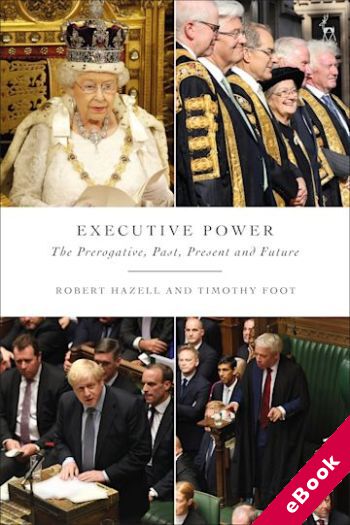
The device(s) you use to access the eBook content must be authorized with an Adobe ID before you download the product otherwise it will fail to register correctly.
For further information see https://www.wildy.com/ebook-formats
Once the order is confirmed an automated e-mail will be sent to you to allow you to download the eBook.
All eBooks are supplied firm sale and cannot be returned. If you believe there is a fault with your eBook then contact us on ebooks@wildy.com and we will help in resolving the issue. This does not affect your statutory rights.
The concept of the prerogative is still a source of mystery to most observers; this book demystifies it. It clarifies the respective roles of government, Parliament and the courts, in defining the extent of prerogative powers, and regulating their use in specific cases, and looks at the powers which should be codified in statute and which should be regulated by convention, and which could be left at large. The book considers the role of Parliament; and if Parliament is to have a stronger role, what additional powers or resources it might need to exercise that role responsibly.
In their 2019 election manifesto, the Conservative party stated that 'After Brexit we also need to look at the broader aspects of our constitution, the relationship between the Government, Parliament and the courts; the functioning of the Royal Prerogative; …'
The prerogative has traditionally remained in the shadows, but the fevered parliamentary debates over Brexit thrust it centre stage. The controversies ranged from the role of parliament in assenting to treaties, to the prorogation and dissolution of parliament, to the grant or withholding of Royal Assent. This book provides a clear and full analysis of the function of the royal prerogative in the changing landscape of the British constitution.